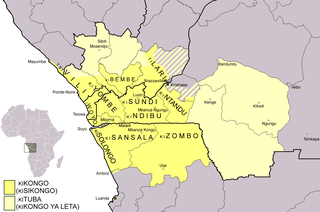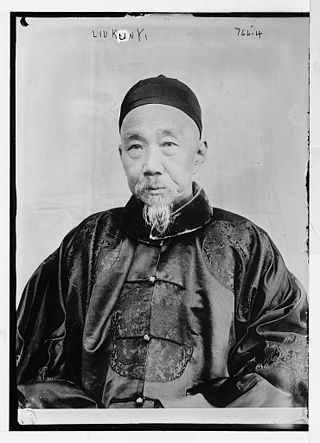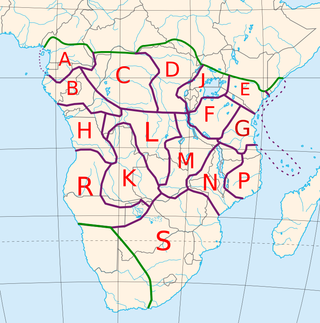Related Research Articles

Niger–Congo is a hypothetical language family spoken over the majority of sub-Saharan Africa. It unites the Mande languages, the Atlantic-Congo languages, and possibly several smaller groups of languages that are difficult to classify. If valid, Niger-Congo would be the world's largest in terms of member languages, the third-largest in terms of speakers, and Africa's largest in terms of geographical area. It is generally considered to be the world's largest language family in terms of the number of distinct languages, just ahead of Austronesian, although this is complicated by the ambiguity about what constitutes a distinct language; the number of named Niger–Congo languages listed by Ethnologue is 1,540.

Christopher Ashton Kutcher is an American actor, producer and entrepreneur. Kutcher began his acting career portraying Michael Kelso in the Fox sitcom That '70s Show (1998–2006). He made his film debut in the romantic comedy Coming Soon (1999), followed by the comedy film Dude, Where's My Car? (2000), which was a box office success. In 2003, Kutcher starred in the romantic comedies Just Married and My Boss's Daughter. That year, he created and produced the television series Punk'd, also serving as host for the first eight of its ten seasons. Kutcher starred in the science fiction film The Butterfly Effect (2004) and had a voice role in Open Season (2006).

Milena Markovna "Mila" Kunis is an American actress. Born in Chernivtsi, Ukraine, and raised in Los Angeles, Kunis began playing Jackie Burkhart on the Fox television series That '70s Show (1998–2006) at the age of 14. Since 1999, she has voiced Meg Griffin on the Fox animated series Family Guy.

Kongo or Kikongo is one of the Bantu languages spoken by the Kongo people living in the Democratic Republic of the Congo, the Republic of the Congo, Gabon and Angola. It is a tonal language. It was spoken by many of those who were taken from the region and sold as slaves in the Americas. For this reason, while Kongo still is spoken in the above-mentioned countries, creolized forms of the language are found in ritual speech of Afro-American religions, especially in Brazil, Cuba, Puerto Rico, the Dominican Republic and Haiti. It is also one of the sources of the Gullah language and the Palenquero creole in Colombia. The vast majority of present-day speakers live in Africa. There are roughly seven million native speakers of Kongo, with perhaps two million more who use it as a second language.

Benue–Congo is a major branch of the Volta-Congo languages which covers most of Sub-Saharan Africa.

The Atlantic–Congo languages are the largest demonstrated family of languages in Africa. They have characteristic noun class systems and form the core of the Niger–Congo family hypothesis. They comprise all of Niger–Congo apart from Mande, Dogon, Ijoid, Siamou, Kru, the Katla and Rashad languages, and perhaps some or all of the Ubangian languages. Hans Günther Mukarovsky's "Western Nigritic" corresponded roughly to modern Atlantic–Congo.
Ibrāhīm al-Kōnī is a Libyan writer and is considered to be one of the most prolific Arab novelists.

Liu Kunyi was a Chinese official who came to prominence during the government suppression of the Taiping Rebellion and was active in the following Self-Strengthening Movement in the second half of the nineteenth century, the late Qing dynasty. He was native of Xinning County, Hunan.
Kuni is one of the Aanaas in the Oromia Regional State of Ethiopia. Part of the West Hararghe Zone, Kuni is bordered on the south by Boke, on the west by Habro, on the northeast by Chiro, and on the east by the Galetti River, which separates it from the East Hararghe Zone.
Bourekas films were a genre of Israeli-made comic melodrama films popular in Israel in the 1960s and 1970s.

The Flying Matchmaker is a 1966 Israeli film musical directed by Israel Becker. The film was the first major success on screen for lead actor Mike Burstyn who has a double role as Kuni Leml and his cousin Max, and also casts his father Pesach Burstein in a small role. The film was selected as the Israeli entry for the Best Foreign Language Film at the 39th Academy Awards, but was not accepted as a nominee.

The 250 or so "Narrow Bantu languages" are conventionally divided up into geographic zones first proposed by Malcolm Guthrie (1967–1971). These were assigned letters A–S and divided into decades ; individual languages were assigned unit numbers, and dialects further subdivided. This coding system has become the standard for identifying Bantu languages; it was a practical way to distinguish many ambiguously named languages before the introduction of ISO 639-3 coding, and it continues to be widely used. Only Guthrie's Zone S is (sometimes) considered to be a genealogical group. Since Guthrie's time a Zone J has been set up as another possible genealogical group bordering the Great Lakes.
Southern Nicobarese is a Nicobarese language, spoken on the Southern Nicobar Islands of Little Nicobar (Ong), Great Nicobar (Lo'ong), and a couple small neighboring islands, Kondul (Lamongshe) and Pulo Milo. Each is said to have its own dialect.
The Sira languages are a clade of Bantu languages coded Zone B.40 in Guthrie's classification. According to Nurse & Philippson (2003), together with a couple languages from H10, they form a valid node. They are:

The Kongo languages are a clade of Bantu languages, coded Zone H.10 in Guthrie's classification, that are spoken by the Bakongo:
Boazi (Bwadji), also known as Kuni after one of its dialects, is a Papuan language spoken in the Western Province of Papua New Guinea by the Bwadji people in the vicinity of Lake Murray and is written using the Latin script, with ⟨æ⟩ for, ⟨ø⟩ for, and ⟨꞉⟩ for vowel length. Some recordings of songs and stories have been made in this language.
Kuni is a Malayo-Polynesian languages of the central southern coast of the Papuan Peninsula in Papua New Guinea.
Events from the year 1879 in China.
Kunyi may refer to:
The colon alphabetic letter ꞉ is used in a number of languages and phonetic transcription systems, for vowel length in Americanist Phonetic Notation, for the vowels ⟨a꞉⟩ and ⟨o꞉⟩ in a number of languages of Delhi, India, and for grammatical tone in several languages of Africa. It resembles but differs from the colon punctuation mark, :. In some fonts, the two dots are placed a bit closer together than those of the punctuation colon so that the two characters are visually distinct. In Unicode it has been assigned the code U+A789꞉MODIFIER LETTER COLON, which behaves like a letter rather than a punctuation mark in electronic texts. In practice, however, an ASCII colon is frequently used for the letter.
References
- ↑ Kunyi at Ethnologue (18th ed., 2015) (subscription required)
- ↑ Jouni Filip Maho, 2009. New Updated Guthrie List Online